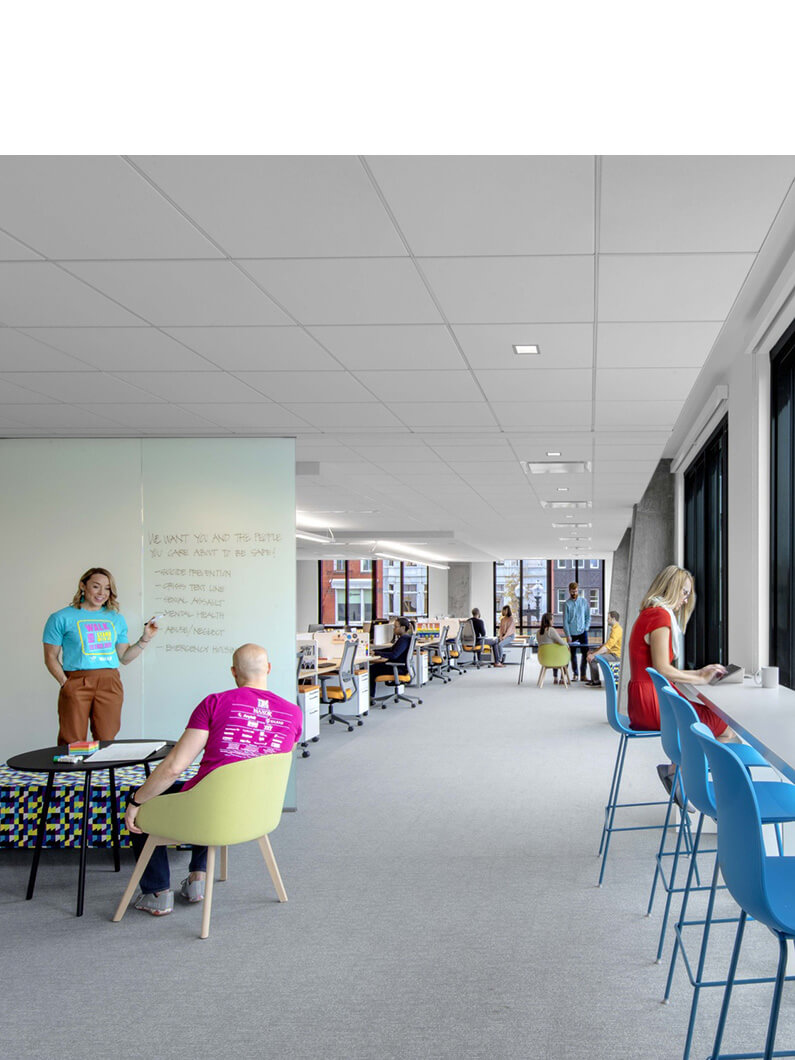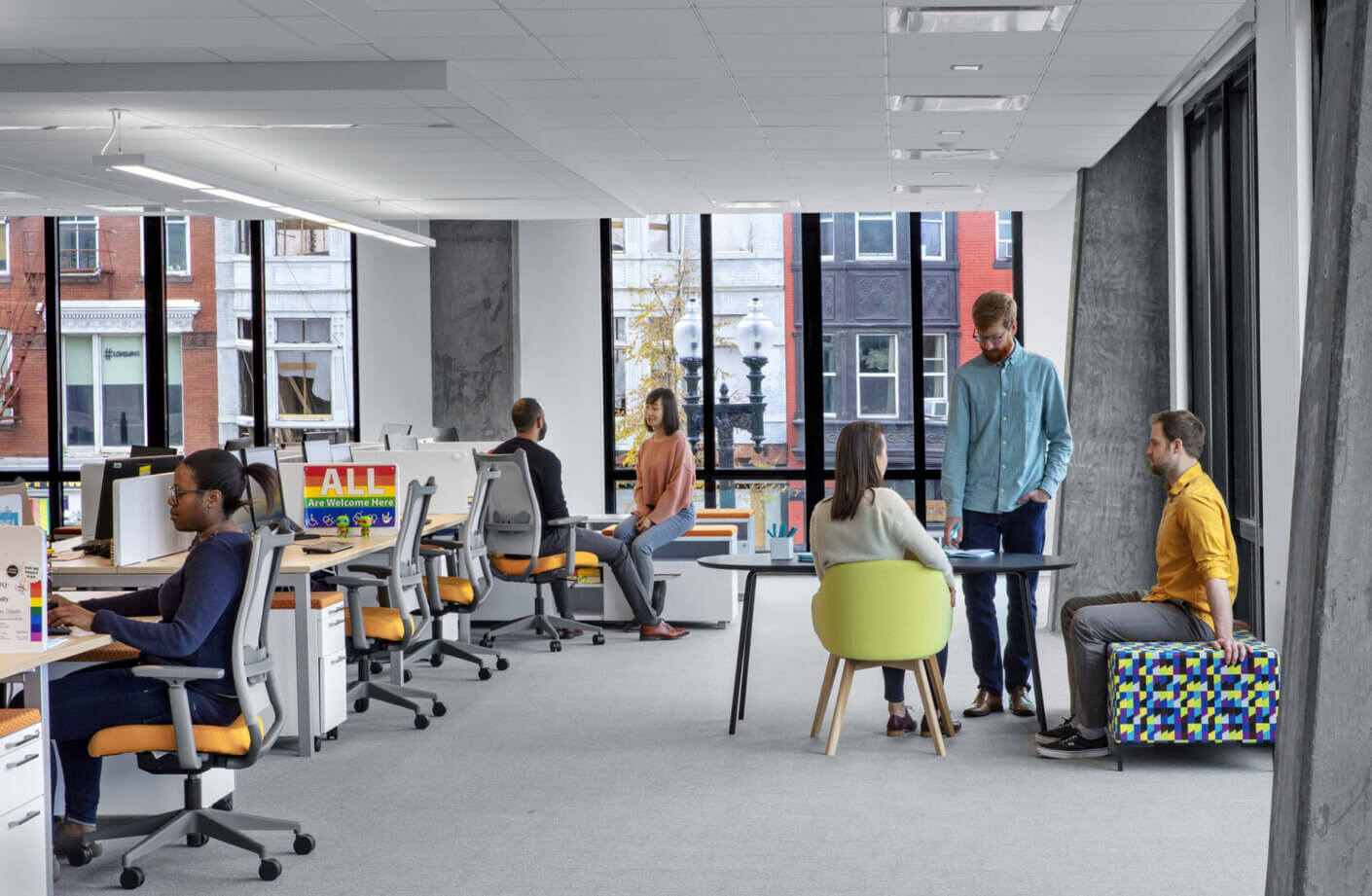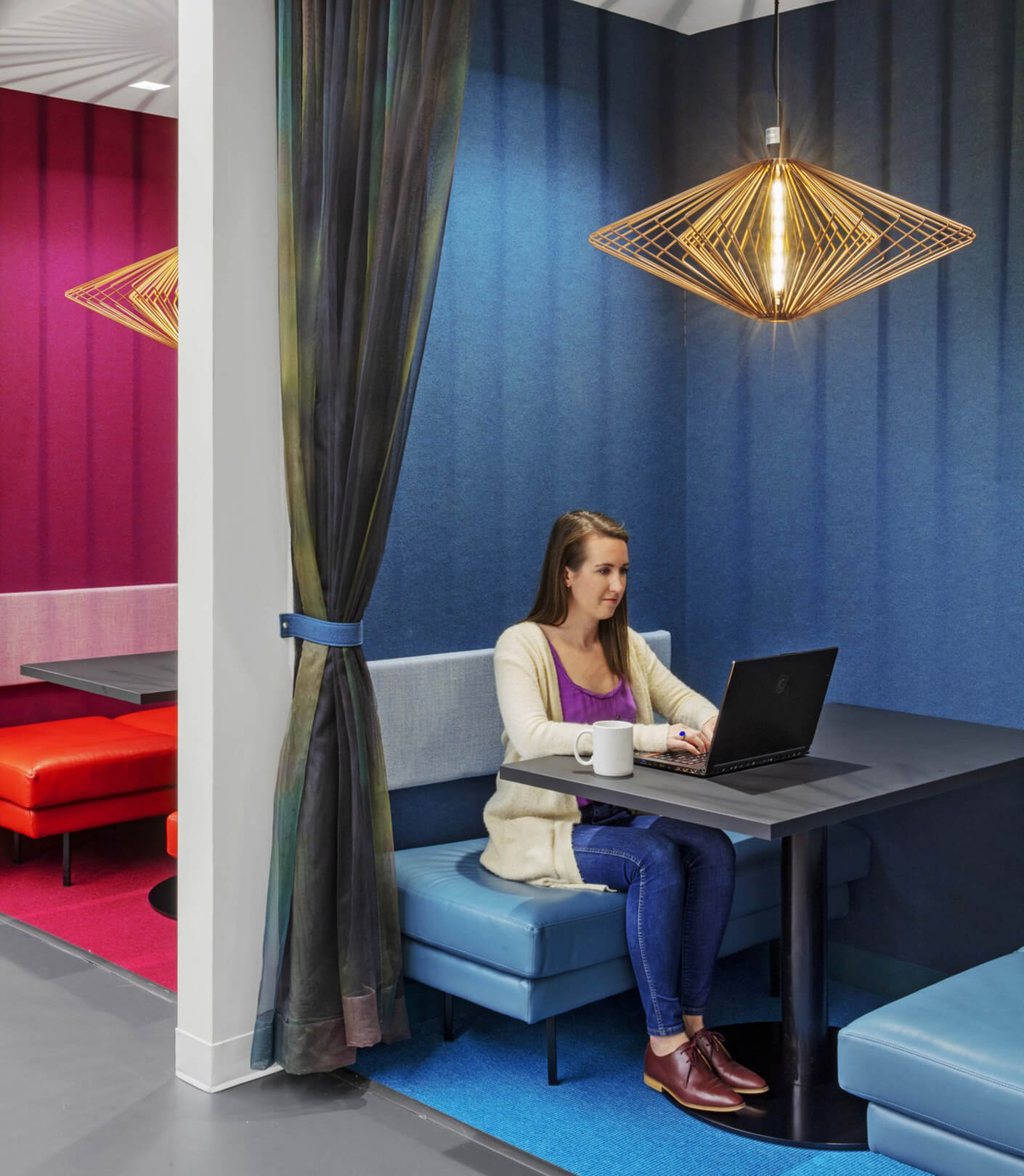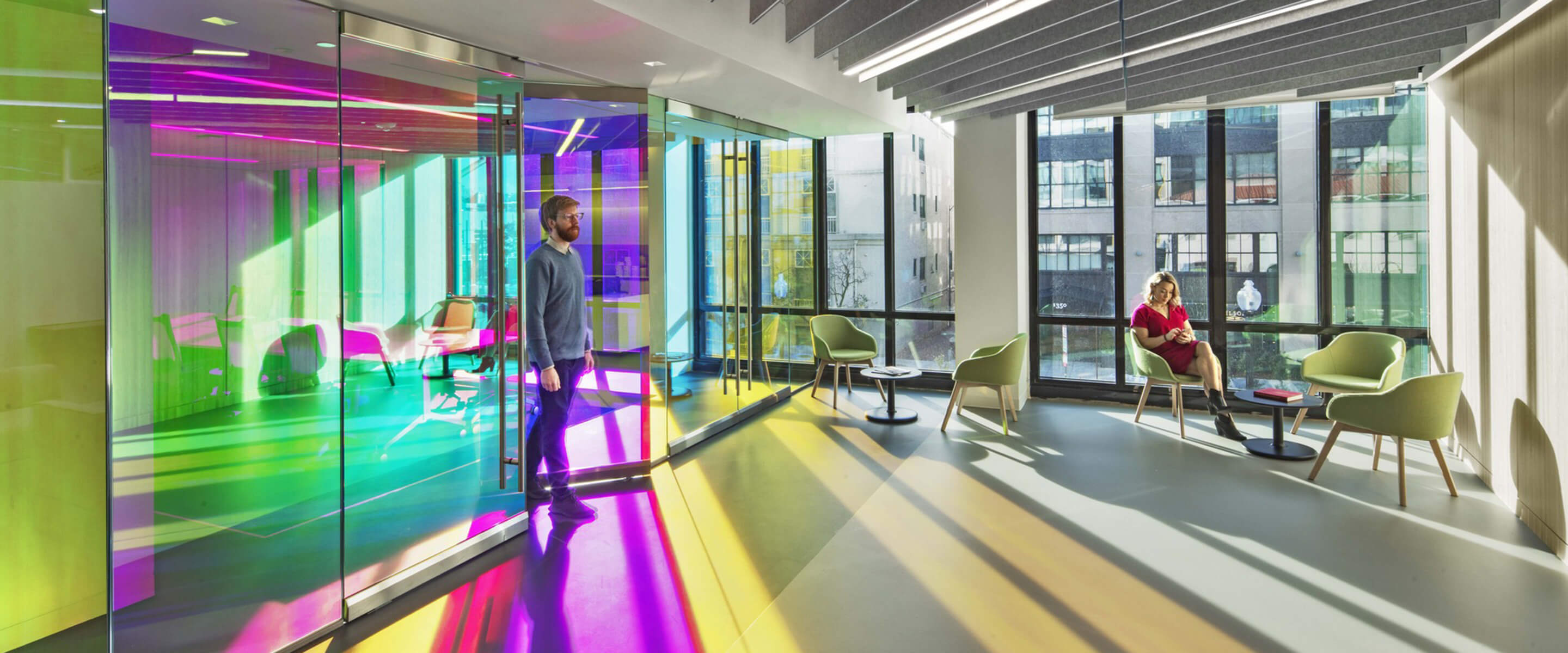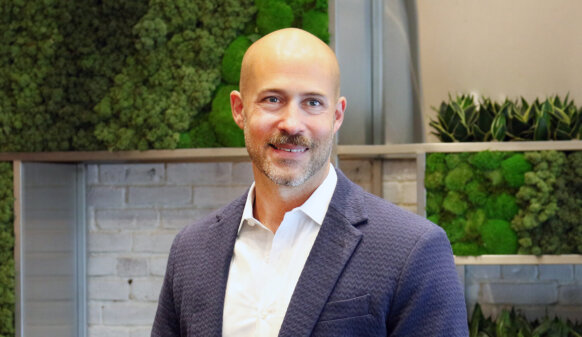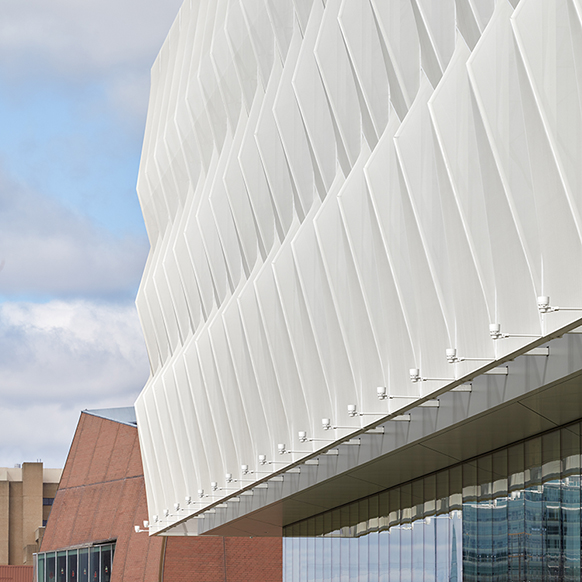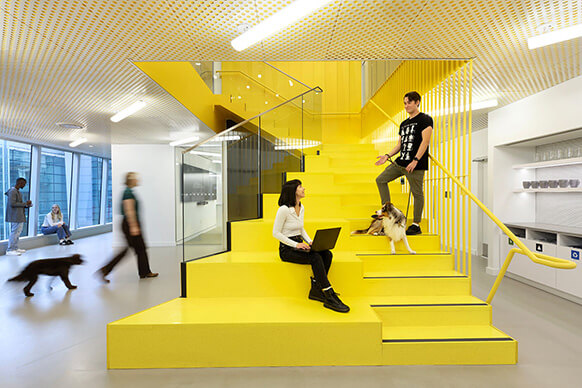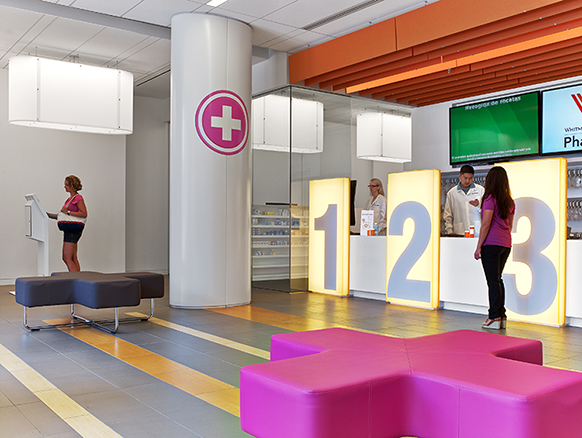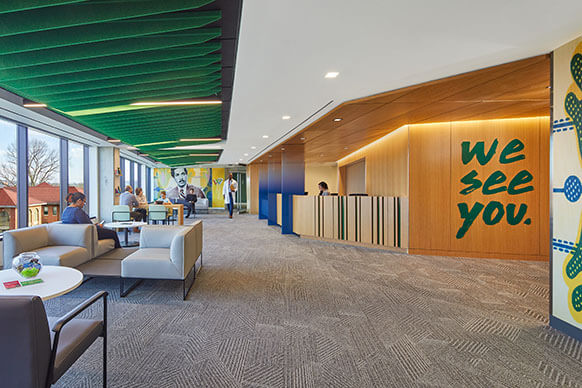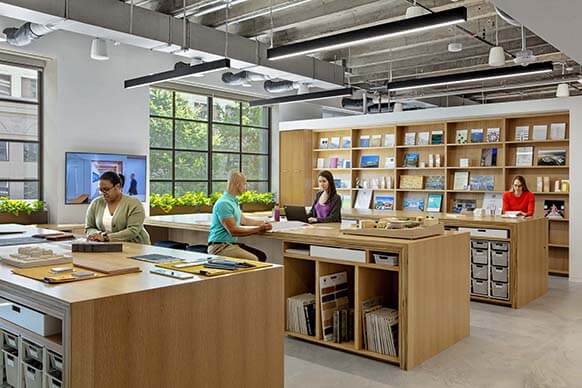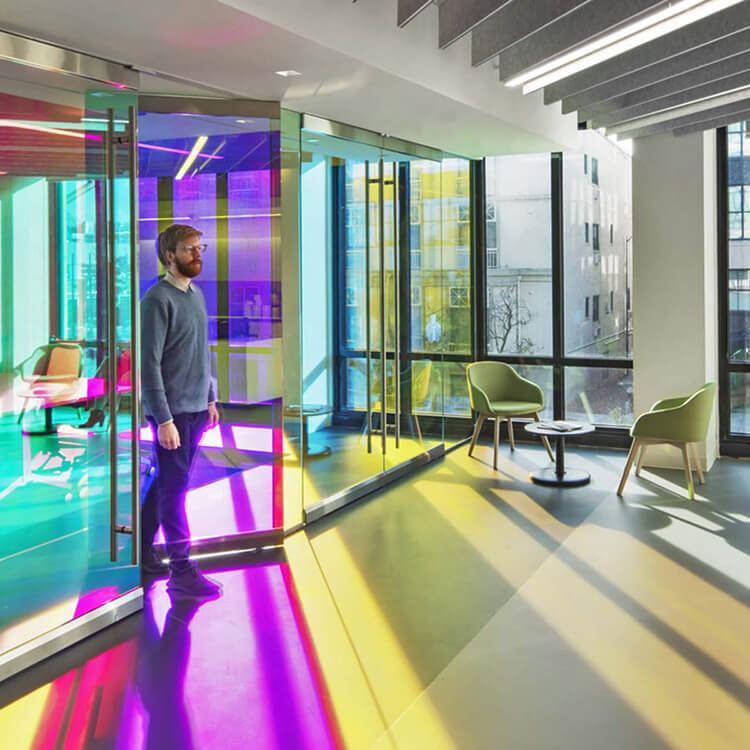
Whitman-Walker Health at LIZ
Since 1973, Whitman-Walker Health’s mission has been to provide the highest quality, culturally competent community healthcare to Washington’s diverse urban population, with special expertise in the needs of the LGBTQ community and those living with HIV. The former home of the Elizabeth Taylor Medical Center—located on 14th Street in Northwest D.C.—has been completely renewed and now serves as the community-based health center’s headquarters. Spanning more than 28,000 square feet, the center is divided into quarters with half of the space for administrative uses, one quarter for research and patient care, and another quarter for legal and benefits services.
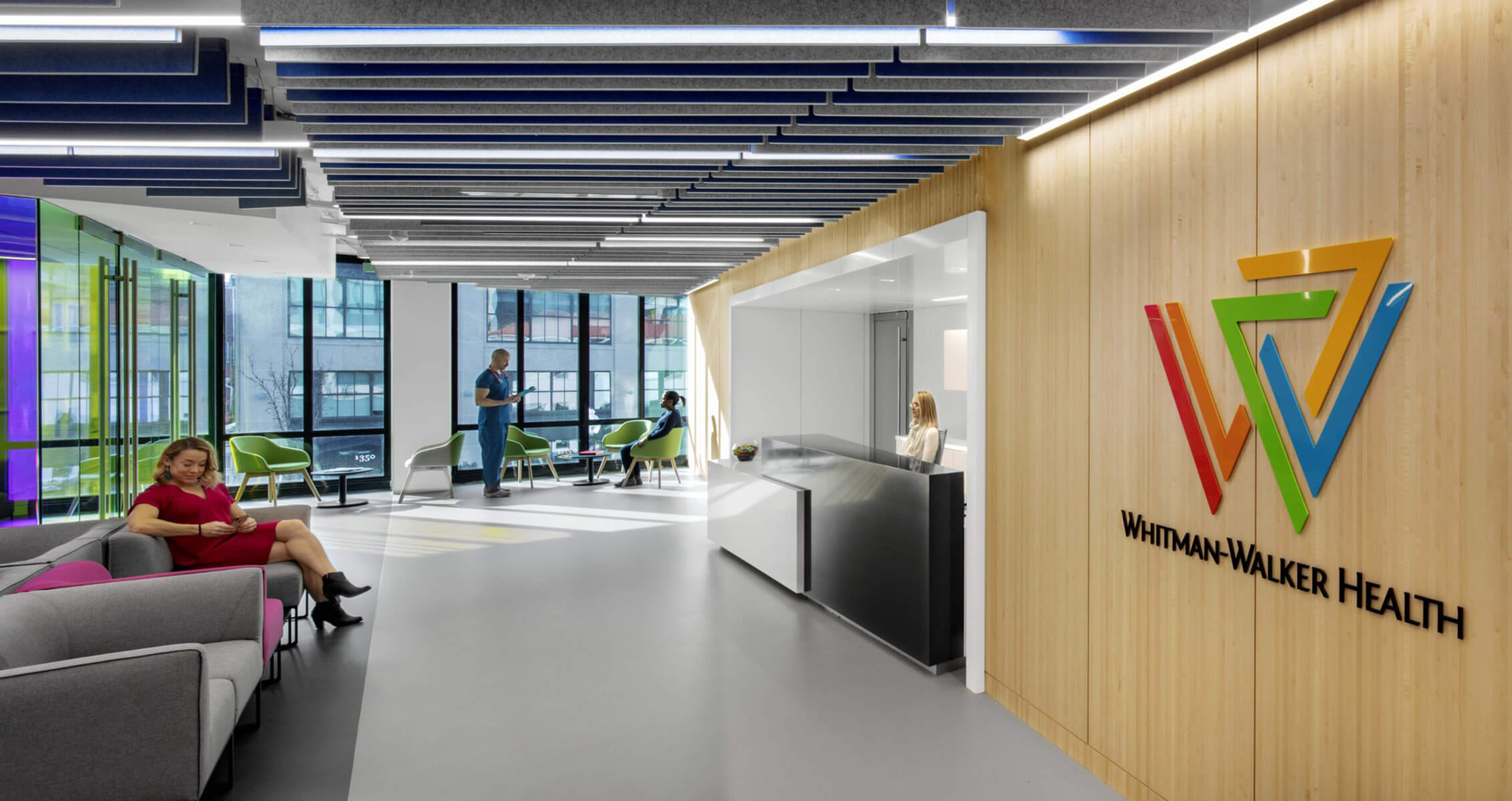
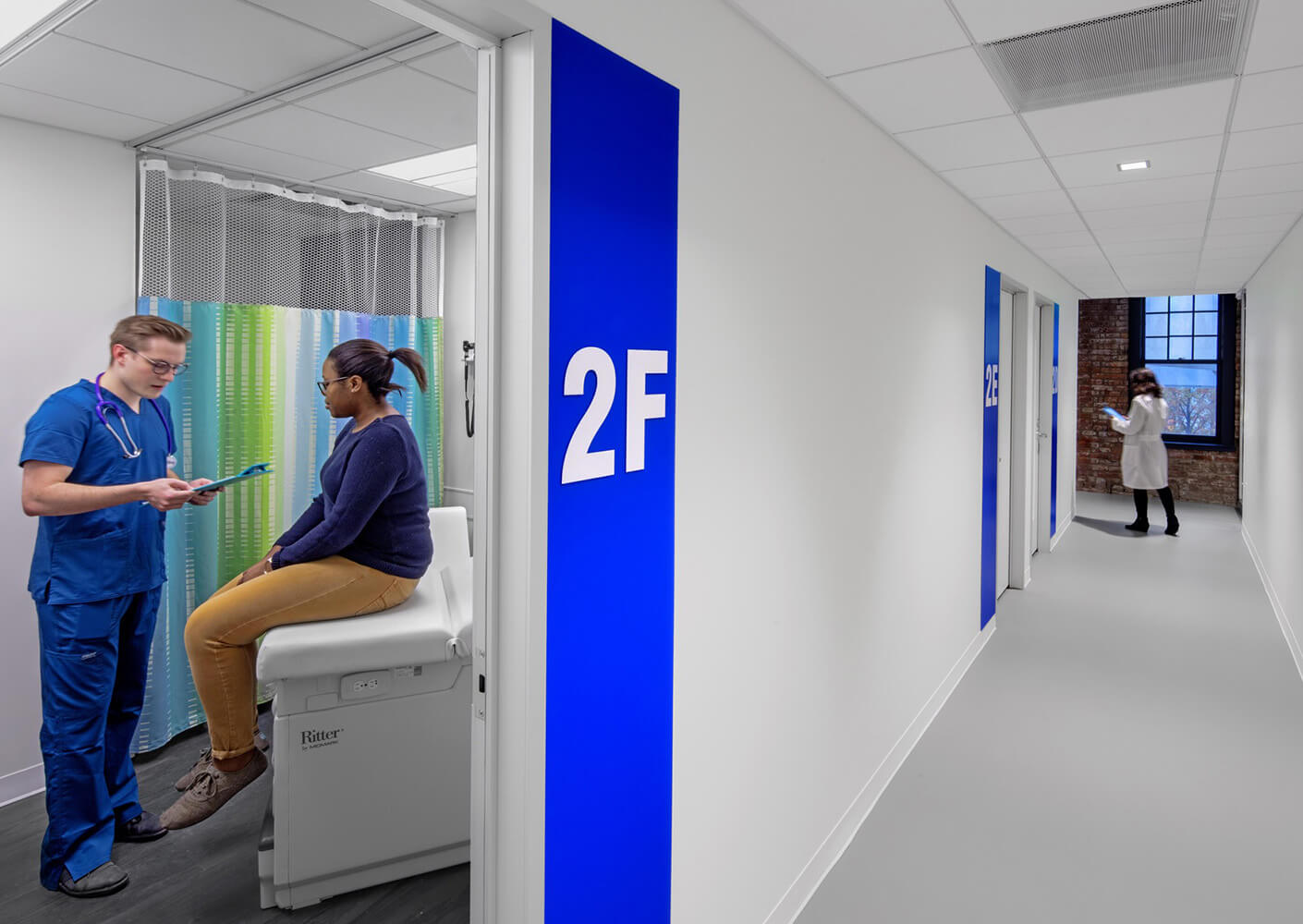
As a public health center, budget was a critical factor for this project. Additionally, a high-quality, healthy environment was crucial to protect HIV-positive and autoimmune-compromised patients. Occupant health goals focused on maximizing indoor air and water quality. To help achieve this, rigorous protocols were followed during construction to avoid contamination of ductwork and interior spaces. The building systems feature enhanced carbon and UV filtration to improve indoor air quality and water filtrations to eliminate water-borne toxins.
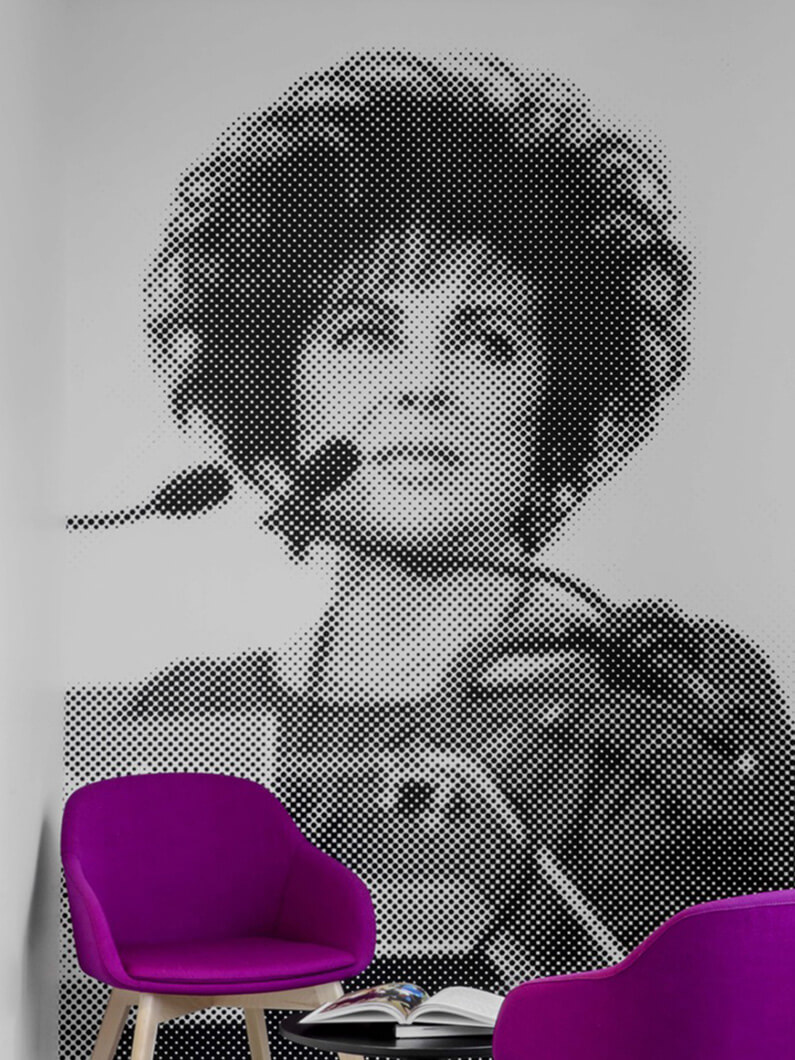
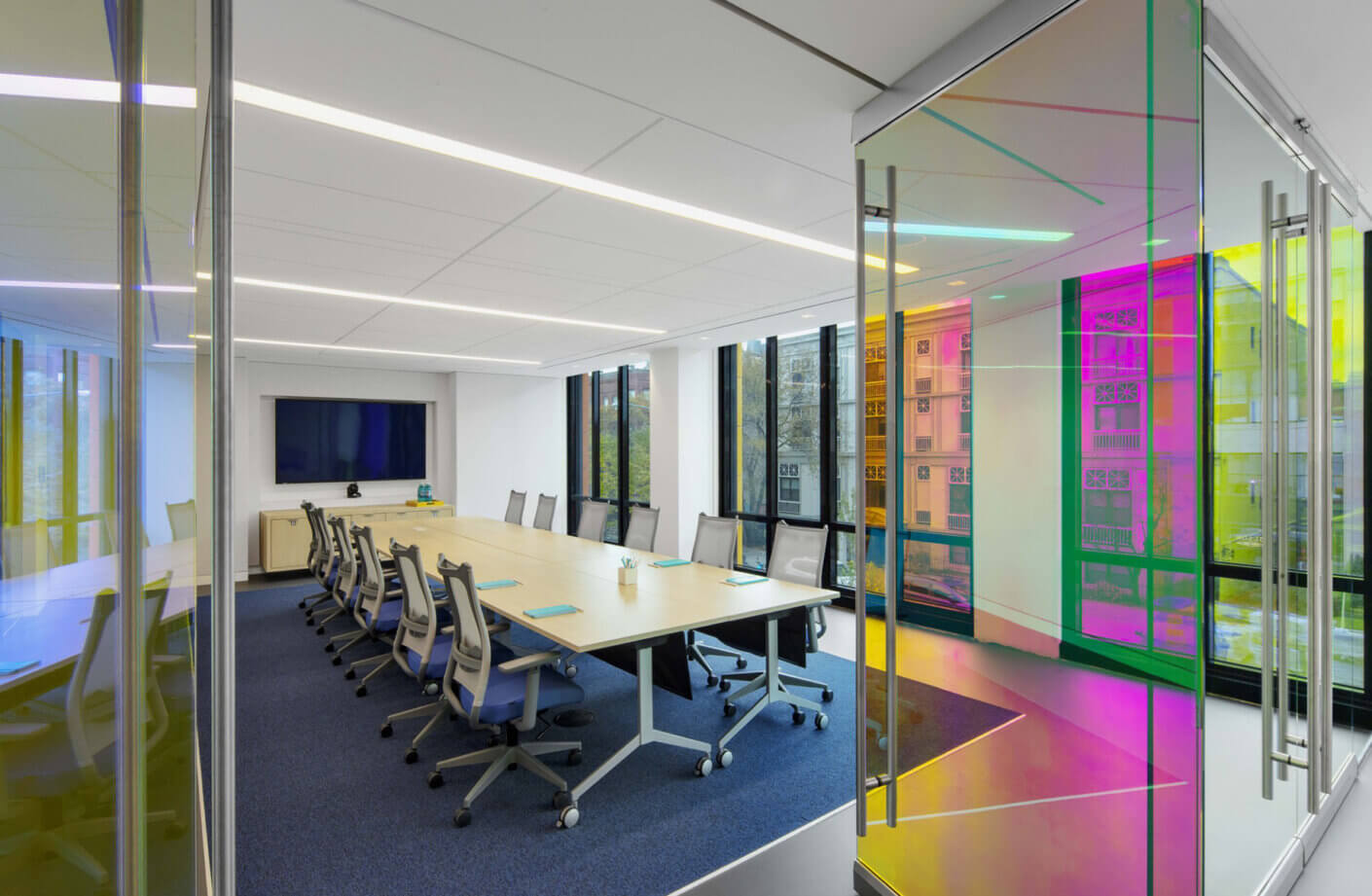
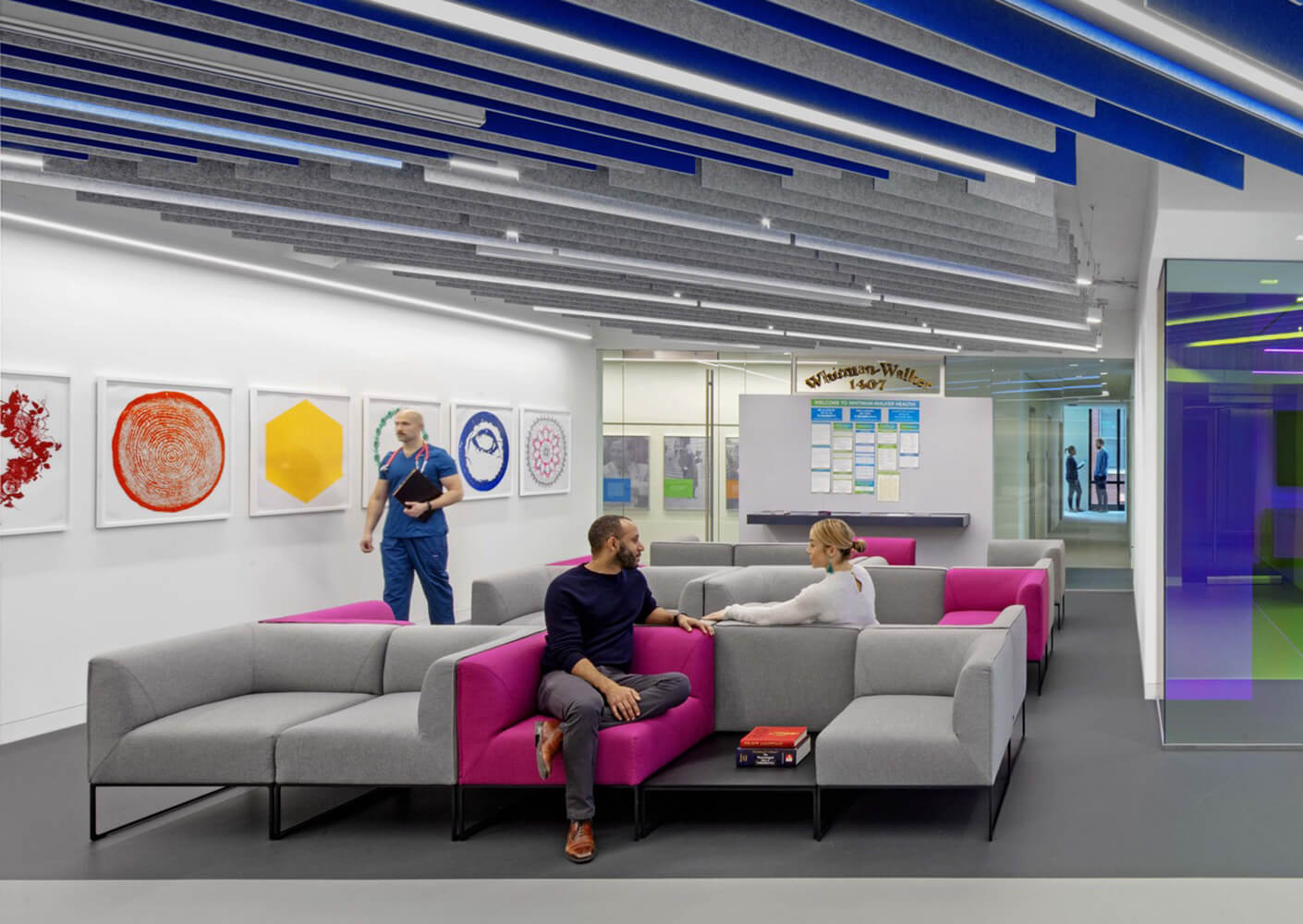
During the initial design phase, our team facilitated a Community Engagement Workshop, which included both patients and employees. Several themes of particular importance rose to the surface from that session; Baltimore artist Rene Trevino was commissioned to create six unique pieces for the reception area based upon those themes.
